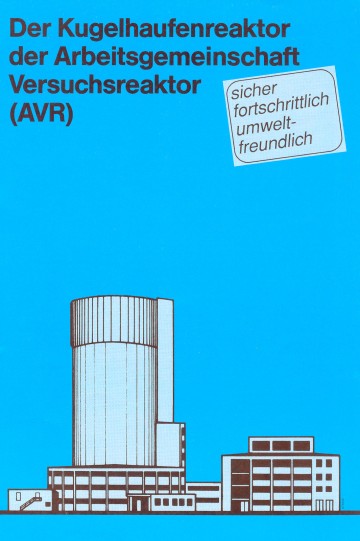TEPCO is the end of the market economy
Alexander Dill, March 28.03.2011, XNUMX in Telepolis
In most economic sectors there are incalculable risks for the community, the consequences of which companies neither can nor want to bear economically
Until the end of the GDR in 1990, it seemed as if a socialist planned economy was the greatest threat to the market economy. Most economists still believe this today. But now there is news: In contrast to Google, a company called Tepco, which is largely unknown until now, is managing to attack the entire market economy worldwide in such a way that it could fall like the Soviet Union did in 1985.
The Tokyo Electric Power Company (1) published its report Vision 2010 (2) ( Document (PDF) (3)). A manifesto of sustainability, CO² savings and social responsibility. With success: On September 29, 2010, Tepco was able to raise new capital amounting to $3,2 billion. Purpose according to the stock exchange prospectus: "Construction of emission-free nuclear power plants."
On September 13, 2010, the Dow Jones Sustainability Index included a number of nuclear suppliers for the first time. At this point, Tepco had long since taken its place in the FTSE4Good Index (4) found – because of exemplary social responsibility. The Tepco share (WKN 854307) has fallen from 18 euros to 7 euros since the greatest economic damage in the history of nuclear power, which was previously trivialized as an "accident".
While official estimates from the Japanese government put the total damage from the earthquake and tsunami at $200-300 billion, the damage caused by Tepco could be many times that: if the world's second-largest industrial nation no longer exports automobiles, its real estate prices collapse and foreign companies and states lose theirs If representatives evacuate and freighters no longer call at the port of Tokyo, then a trillion, but then 2, 3 or 4 trillion dollars can quickly be reached.
Tepco, which already posted losses in 2007 and 2008, will not be able to pay a fraction of the damages. This makes clear a truth that is unbearable for many: the market, the markets and their "market participants" are not remotely capable of dealing with a topic as complex as "energy" using the paradigm of profit prospects.
Tepco operated completely outdated, never controlled reactors like Madoff operated his fund: in the hope that no one would notice. The newly appointed chairman of the Federal Government's Ethics Commission, Klaus Töpfer, dares to make the following statement even before the commission's work begins:
We should get out of a technology in which events that cannot be controlled cannot be ruled out as quickly as possible. Any other action would not be responsible.
Klaus Toepfer
This means that energy can no longer be left to a fictitious “energy market”. But how then do raw materials, food, water, currencies, credit, transport, medicines, chemical products and telecommunications? In most economic sectors there are incalculable risks for the community, the consequences of which companies neither can nor want to bear economically. The opportunity costs can even exceed the company's sales - for example in the disastrous local public transport system.
Let's take a look at the DAX 30 companies: How many of them operate in a territory that can, may and should be entrusted to private profit interests without risk to the general public? Apart from sneakers and sports fashion (adidas) and business software (SAP), if we look more closely, there is no DAX company that can be assumed to participate in the competition without excluding major damage to the community.
This is bad news for the mostly foreign investors who have previously lived in the religious belief that their profits are permanently guaranteed by "favorable conditions" such as low taxes, no competition, low wages and a lack of monitoring.
Tepco has ruined faith in the market economy more and faster than thousands of globalization critics and environmental activists. If there is to be something like a market economy in the future, it will have to be limited to those areas of life in which market participants cannot ruin entire states. This will bring the market back to the marketplace. This shouldn't be a problem in federal Germany.
Alexander Dill
Dr. After 20 years in business, Alexander Dill has returned to his trained profession as a social researcher. Since February 2010 he has been the board member of the Basel Institute of Commons and Economics, which was founded after the financial crisis (5).
- http://www.tepco.co.jp/index-j.html
- http://www.tepco.co.jp/en/corpinfo/overview/vision-e.html
- http://www.heise.de/tp/r4/artikel/34/34443/34443_1.pdf
- http://www.ftse.com/Indices/FTSE4Good_Index_Series/index.jsp
- http://www.commons.ch
Telepolis article URL: http://www.heise.de/tp/r4/artikel/34/34443/1.html
*
Further to: Newspaper article 2011
***
Top |
***
Donation appeal- The THTR-Rundbrief is published by 'BI Umwelt Hamm e. V. ' - Postfach 1242 - 59002 Hamm and financed by donations. - The THTR circular has meanwhile become a much-noticed information medium. However, there are ongoing costs due to the expansion of the website and the printing of additional information sheets. - The THTR circular researches and reports in detail. In order for us to be able to do that, we depend on donations. We are happy about every donation! Donations account:BI Umweltschutz Hamm |
***
Top |
***



